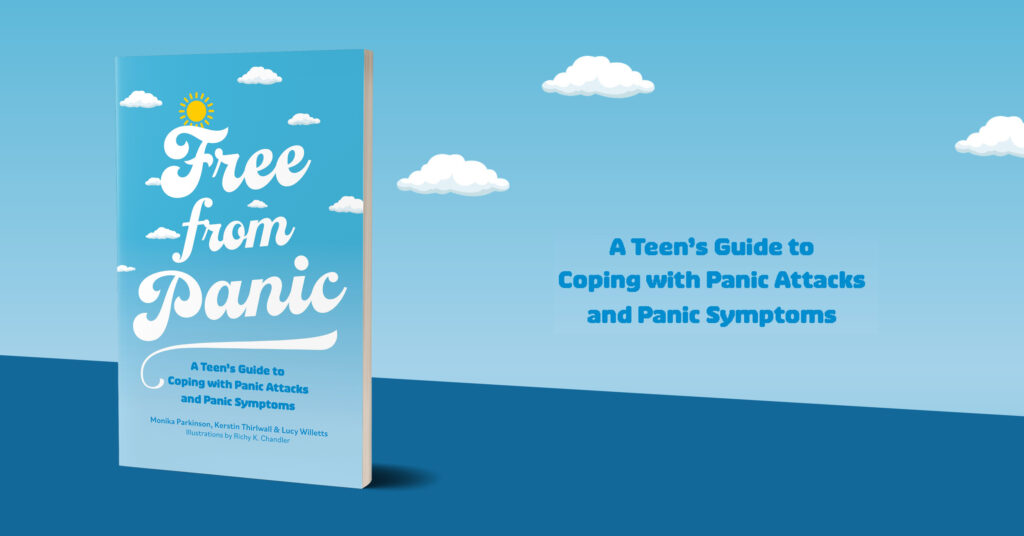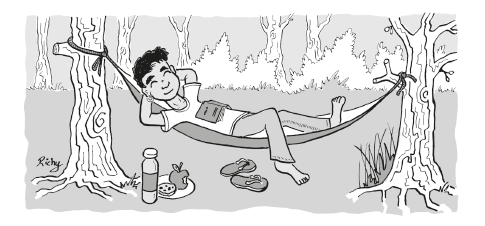
Why do some of us struggle with panic symptoms and some of us don’t?
Taken from the first and third chapters of Free From Panic by Monika Parkinson, Kerstin Thirlwall and Lucy Willetts, this excerpt explores exactly what panic is, and answers some of the most common concerns and queries surrounding panic and anxiety. In the words of the authors: “Whether you are a young person who is experiencing panic symptoms or a parent/carer or professional who wants to support a young person to feel better, it is our intention to give you a range of ideas and ways to gain freedom from panic”.
What is panic?
Panic is no laughing matter. People often use the phrase ‘don’t panic’ in a light-hearted way, but for those individuals who experience severe panic symptoms or panic disorder, this is much easier said than done. Panic symptoms, or a full panic attack, can often feel overwhelming and extremely frightening. Many people report feeling or thinking that they are about to collapse or die. Experiencing panic symptoms can make a person feel anxious a lot of the time, even when the panic has subsided, and it can lead to avoidance of certain situations, people or places and start to have a negative impact on many areas of life.
Why do some people struggle with panic symptoms and some don’t?
Well, to start with, some people are simply more prone to having anxiety than others. We all experience anxiety – we all have the ‘fight or flight’ response – this is an important part of how our brain works. It keeps us safe. However, for some, this is triggered when there isn’t actually any danger. Some people will experience panic symptoms much more often than other people. The other thing to bear in mind is that panic symptoms are not always that obvious on the outside. You may think they are, because when you feel them they are so unpleasant, but on the outside, they can actually be pretty subtle. You wouldn’t necessarily know that someone’s heart is beating fast or that their stomach is churning. So, there may actually be a whole load of people you know who do often have panic symptoms but it’s simply not apparent to anyone around them.
“there may actually be a whole load of people you know who do often have panic symptoms but it’s simply not apparent to anyone around them”

What about anxiety in general? Where does it come from?
But why are some people more prone to anxiety? Genes play a part; we inherit all sorts of things from our parents, and a tendency to get anxious may be one of them. Environment is another factor; we learn from people around us. If someone close to us sees danger and threat (where there might not be any), we also may begin to see threat too.
Here is an example: your mum sees a large spider, she screams and she leaves the room. This happens repeatedly. As a young child, this may lead you to think, ‘Hey, spiders must be dangerous in some way. I had better avoid them too!’ Life events and difficult experiences may also play a part. For example, you are involved in a car crash, or someone close to you dies. This may lead you to see the world a bit differently. You realize that people do die, even people close to you, and that changes how you behave somewhat. People may treat you differently because of this; teachers may think you need special treatment, they may make allowances for you or they perhaps don’t push you as much to do well. In essence, they protect you more. All these things contribute to the chances of any of us experiencing anxiety. There are lots of things that influence how prone we are to anxiety.
Free From Panic by Monika Parkinson, Kerstin Thirlwall and Lucy Willetts is available to order now.